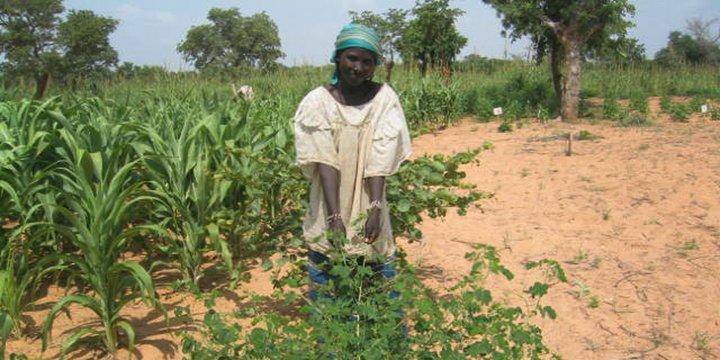Women farming wild species in West Africa

Women play an important role in domesticating nutritious wild species in Burkina Faso, Mali and Niger both for sale and home consumption.
Domesticated crops form the basis of agricultural, food and livelihood security. About 7000 plant species have been domesticated for consumption throughout human history. Whether for food, fuel or fibre, domestication is the process whereby people select animals or plants based on their useful traits, accentuating these traits over time. For example, domesticated fruits are often bigger and sweeter than their wild relatives.
In West Africa, women play a particularly important role in domesticating wild species. Due to less stable land tenure and small farm size, many wild species are the primary source of income and nutrition for women and their families. The iconic shea tree (Vitellaria paradoxa) of the West African savannah for example, forms part of a complex women-led value chain that reaches both local and foreign markets as chocolate, cosmetics and other uses.
Bioversity International's work in Burkina Faso, Mali and Niger has come across other important wild species that women are bringing into the agricultural realm. Two in particular, Cassia tora and Ceratotheca sesamoides, have now been domesticated through various practices such as, letting them grow among other crops on farm or harvesting their seeds to grow in the next season. The two species are highly nutritious and mostly used as leafy vegetables for daily consumption. Although more research needs to be done, Cassia tora for example, is known for its richness in zinc, β-carotene and antioxidants - nutrients that are lacking in the staple crops consumed in the area (millet and sorghum). Many women farmers are becoming specialists in the best time to plant these species, how densely to plant them and how to select good quality seeds for future use. There are now seed producers and vendors in the area, and many sell the vegetables in local and regional markets.
But there is little support for such practices in West Africa. Most governments do not recognize farmer-bred varieties, or even oppose the sale or sharing of varieties that have not been nationally registered. The crux of the matter is that registration is based on rules that landraces and local cultivars cannot meet (distinction, homogeneity, stability). Bioversity International has been working with national partners and the International Treaty on Plant Genetic Resources for Food and Agriculture to legally recognize farmers' right to save, exchange or commercialize seed varieties, but implementation at the national level has not been able to meet the rate of new farmer-bred varieties. On average, just 0.62 new seed varieties are released in African countries each year across eight major food crops.
The opportunities however, are huge. Our research in Niger has indicated that 100-150 wild species are commonly consumed as vegetables by rural and urban communities. Many of these become even more important in times of drought or crop failure. Considering that these countries are also suffering from deforestation, increased land competition and weak institutional structures to support access to wild foods, domestication is a key part of keeping these resources within reach. Recognition and documentation of the role that these farmers play is the first step, but much has yet to be done.
Read more in this publication on collaborative efforts to improve the conservation and use of plant genetic resources in West and Central Africa.
The above research refers to the Bioversity International-led project: Empowering Sahelian farmers to leverage their crop diversity assets for enhanced livelihood strategies, supported by the International Fund for Agricultural Development (IFAD).
Contact Raymond Vodouhe or Sognigbe N’Danikou for more details.
